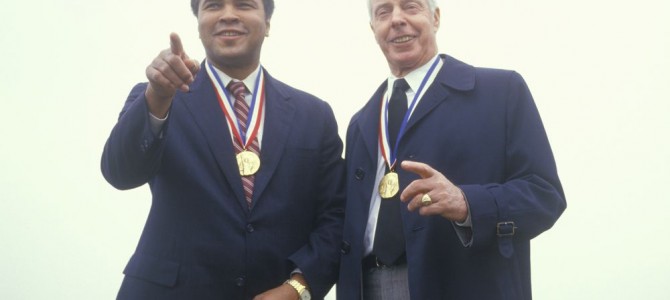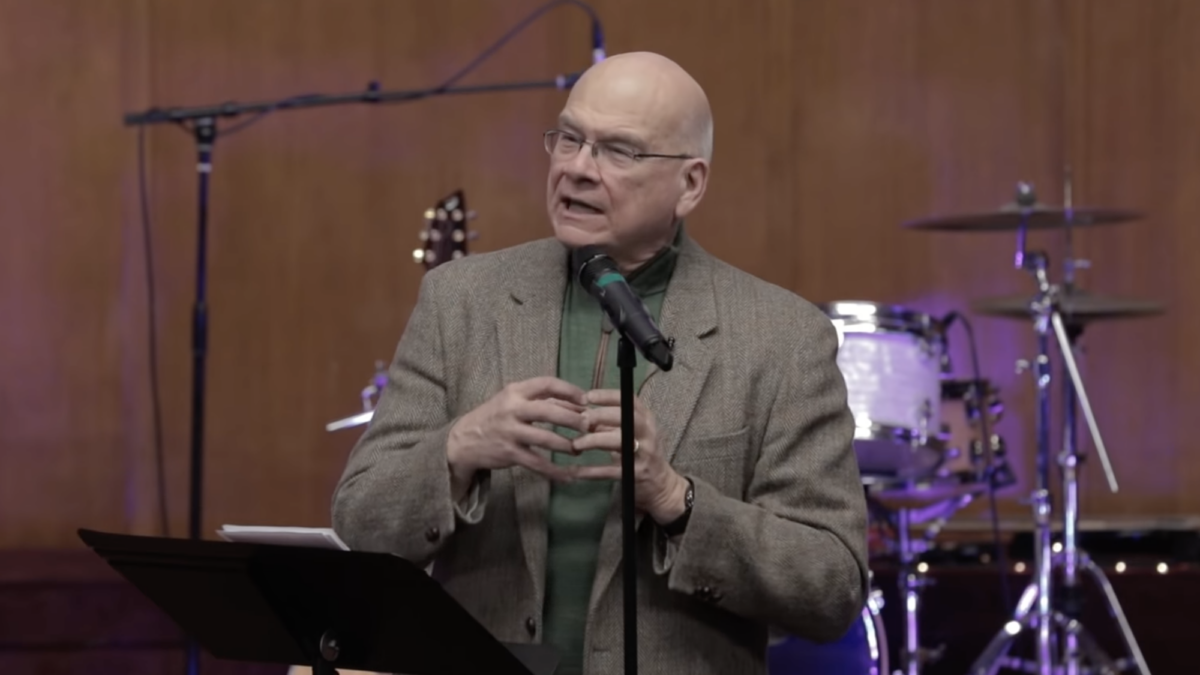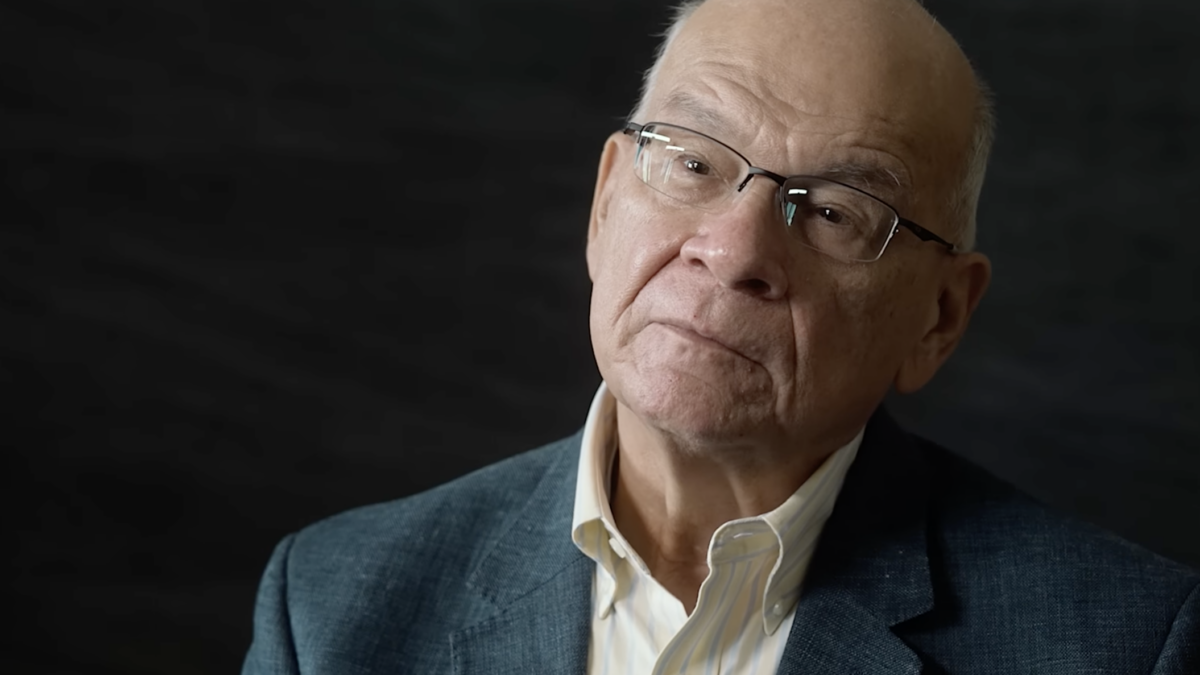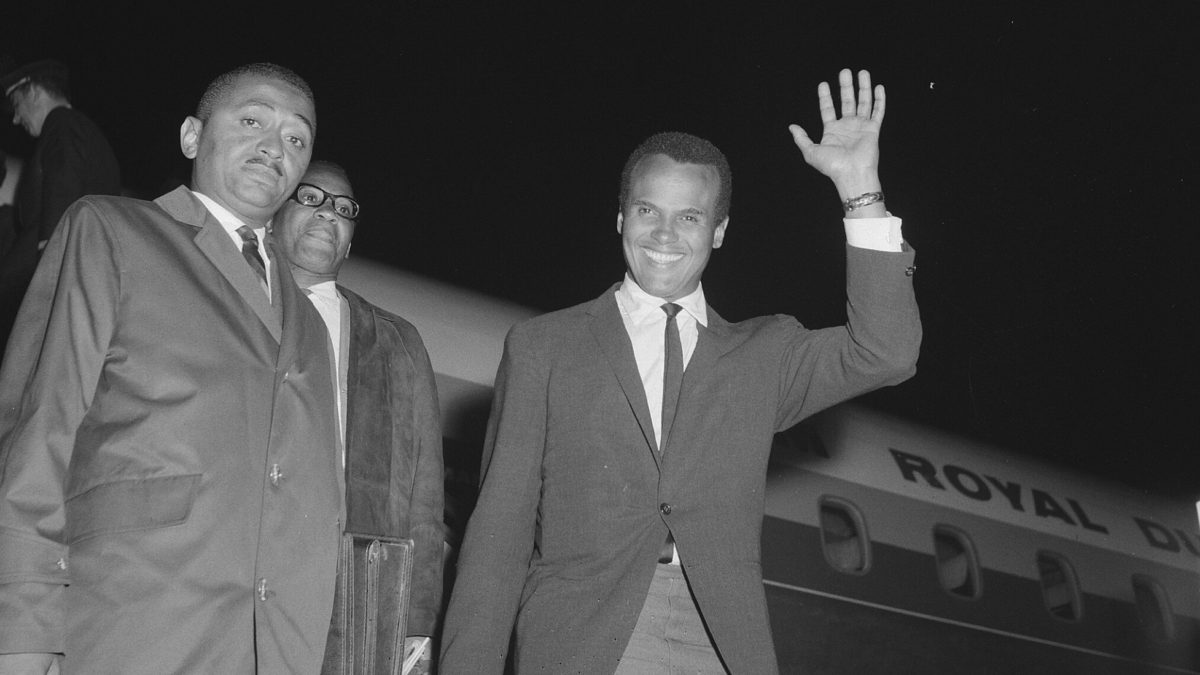
With the death of former heavyweight champion Muhammad Ali, a new fight is emerging in the massive shadow of his life. In segments of both the Right and Left is a sense that his story has been softened, his image whitewashed, and his legacy turned into a cultural fiction. Ali was a radical. Whether one views that radicalism as virtuous or sinister, there is truth to idea that much of it is being ignored.
At Huffington Post, Maxwell Strachan argues that whitewashing Ali was meant to make him more acceptable to white fans and admirers. As the article puts it: “Throughout U.S. history, white Americans have toned down the life stories of radical people of color so that they can celebrate them as they want them to be, not as they were. It is why we first think of ‘I Have a Dream’ when we hear the name Martin Luther King Jr., and not his opposition to the Vietnam War. Narratives are altered. Complex people simplified. Revolutionary ideas watered down, wrapped and packaged with a bow for mainstream America.”
It is not made clear who is responsible for this in Ali’s case. In looking back through Ali’s life and career, it is also not clear why the boxer’s legacy was altered in this way. It is possible that media outlets and Ali’s business partners might have chosen to water down his radicalism for profit. But his radical ideas about race, religion, and the United States themselves also didn’t always paint him in a very good light.
Race as Promotional Material
Part of what made Ali “The Greatest” was his gift for self-promotion. His willingness to say outlandish things and his poetry while deriding the talents of his opponents was a revelation to 1960s America. In an era when athletes were meant to be humble and do their talking with their talent, Ali wanted more, and he knew how to get it.
Race and religion were central to Ali’s promotion of himself. By changing his name from Cassius Clay, the sobriquet of a ninteteenth-century abolitionist, he was making a political and social statement. In joining the Nation of Islam, a radical Black Muslim movement, he further challenged the acceptable norms of 1960s American society.
None of this is to say that Ali’s beliefs were not sincere. He remained a Muslim his whole life and was a champion for the concept that Islam is a religion of peace. Likewise, his sometimes-controversial attitudes on race were clearly deeply held. But he knew these were hot buttons, and he was quite expert at pushing them, even in terribly unfair and hurtful ways.
Joe ‘Uncle Tom’ Frazier
In 1971, after facing a three-year suspension for refusing to serve in Vietnam, Ali was back to regain his title. In his way was an old friend, the then-current champion Joe Frazier. Frazier had helped Ali during his three-year hiatus with money and influence to get him reinstated. But instead of thanking Smokin’ Joe, Ali used the opportunity to once again put race front and center in his self-promotion.
Ideally, Ali would have faced a white opponent, as in the movie “Rocky.” Apollo Creed was based on Ali, and Rocky Balboa was based on a white version of Frazier, a southpaw who actually trained by punching sides of beef in Philly. But there was no white boxer on his level. About the only man on his level was Frazier, who was decidedly black. This did not stop Ali from putting race front and center in the fight. Ali’s contention was that, unlike himself, Frazier was a pawn of white and Jewish promoters. He flat-out called Smokin’ Joe an Uncle Tom.
In a 1996 Sports Illustrated cover story Frazier talked about that time: “This guy was a buddy. I remember looking at him and thinkin’, What’s wrong with this guy? Has he gone crazy? He called me an Uncle Tom. For a guy who did as much for him as I did, that was cruel. I grew up like the black man-he didn’t. I cooked the liquor. I cut the wood. I worked the farm. I lived in the ghetto. Yes, I tommed; when he asked me to help him get a license, I tommed for him. For him! He betrayed my friendship.”
That fight in 1971 was as brutal a competition of pugilistics as the world has ever seen. Frazier’s anger at Ali’s unfair racial attacks found its culmination in one of the greatest punches ever thrown. In the fifteenth round, after a juke he landed a slow and searing left hook that dropped Ali. Ali got up—he always got up—but Frazier had sent his message. The Uncle Tom had grounded the great radical black man.
Frazier never forgave Ali for his insult. In that same 1996 interview he said he was happy that his punishment of Ali in the ring might have led to Ali’s Parkinson’s disease. Frazier was also clearly unhappy about the accolades and awards Ali was winning. When Ali lit the Olympic flame in 1996, Frazier said he wished he could have been there and pushed him into the fire.
Revising Ali’s Legacy
1996 was seminal in reestablishing Ali’s place in American sports and cultural history. After losing to Trevor Berbick in 1981, Ali’s career was over. Boxing moved on, and by the mid-1980s Mike Tyson had become the new superstar the sport needed. But by the 1996 Olympics the media was ready to celebrate a new, weakened version of Ali once again.
Now suffering demonstrably from his illness, he was lauded as a hero and human rights activist, and he received a presidential award from Bill Clinton. This was the moment when the whitewashing so bemoaned by those in the liberal press began. This great champion, clearly suffering, was turned into a saint. Yes, that meant erasing his most controversial and frankly sometimes horrible statements about race, including the statement “No intelligent person wants to mix races.”
If the Left wants that back, if it wants the proud black man sticking it to the man to replace the graceful and loving image of Ali that was perhaps fabricated, it comes with a price. It comes with the baggage of his self-serving and unfair willingness to throw others under the bus. Great men are complicated; they often do bad things. At the hours of their deaths we forgive them, and cast a generous eye on their lives. Ali deserves nothing less.
But if Ali the radical must replace Ali the celebrity, then it must be done honestly. We must accept that his refusal to serve in Vietnam meant somebody else had to. We must recognize his often separatist rhetoric in denouncing interracial relationships. He can still be a hero to some, but he can no longer be the same hero to all.
We seek perfection in our heroes. We never get it. The flaws, the bad decisions, the arrogance is always there, beneath the veneer of our adulation. Maybe in the case of Muhammad Ali it is best that we ignore his more radical positions. Maybe he helps us more as a smiling and funny great fighter than he does as an activist of black liberation. But if he doesn’t, if the latter must be his legacy, it must be an honest one. It’s not always a legacy that makes the champ look good, but it is who he was.









